Our history
2016
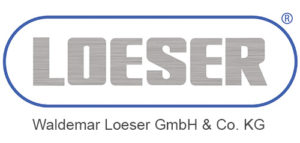
Company anniversary – 80 years of LOESER
2010
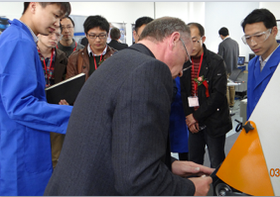
Intensification of worldwide cooperation
Thomas Löser during dealer training in China
2000
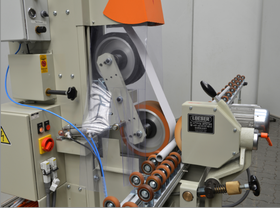
Expansion of the product portfolio
Michael and Thomas Löser continuously develop and improve the range of machines.
1994
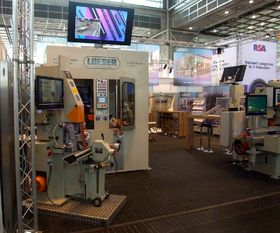
The third generation takes responsibility
Thomas and Michael, the sons of Waldemar Löser, take on areas of responsibility in the company, including customer contact at international trade fairs.
1986

New company logo LOESER
An internationally readable company logo without umlauts is created.
Start of production of superfinishing machines.
1985
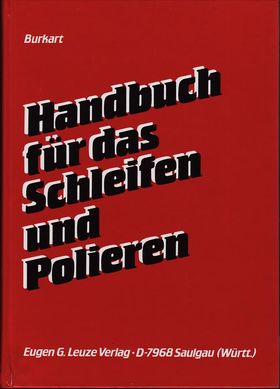
LOESER contributes to standard literature on grinding
In addition to working on standard literature, new developments of cylindrical grinding machines are created at LOESER.
1976

Expansion of the machine portfolio
The 2nd generation, Waldemar and Robert Löser, continuously expand the range of round, flat and deburring machines.
The focus is on machines for processing metal and other materials. Woodworking machines take a back seat.
1974
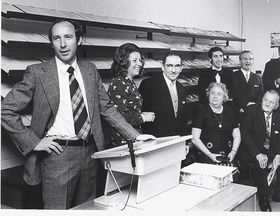
The second generation runs the company
Waldemar and Robert Löser are the second generation to run the company and are continuously expanding their range of machines and customer base.
1974
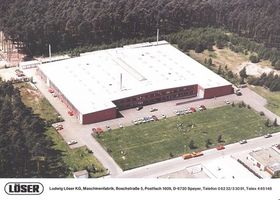
Production and administration extension
The area of the Wormser Landstrasse in Speyer is largely developed. A further expansion of the production capacities requires a move with a completely new building on the outskirts of Speyer. The new company premises on Boschstraße in Speyer, with a covered area of 7,000 square meters and a company site of 25,000 square meters, offer excellent conditions for production and assembly.
1972
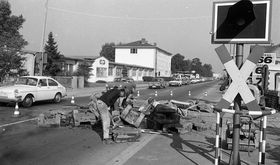
Company and factory buildings are becoming too small
The increasing number of employees and the broader range of machines led to the planning of a new building on the outskirts of the city, since the space available at Wormser Straße 96 was exhausted.
1969
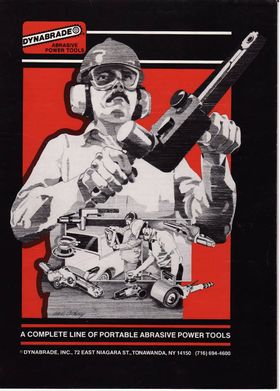
Takeover of DYNABRADE sales in Europe
Waldemar Löser, son of Ludwig Löser, places an order with DYNABRADE USA for 100 compressed air hand belt grinding machines.
This marks the start of the production of DYNABRADE hand belt grinding machines.
1965

Company and factory buildings
1960

Close contact with 3M, USA
The close business relationship with 3M brought him into contact with Stephan Bader USA. Start of production of belt grinding machines for metalworking for the European market.
1958
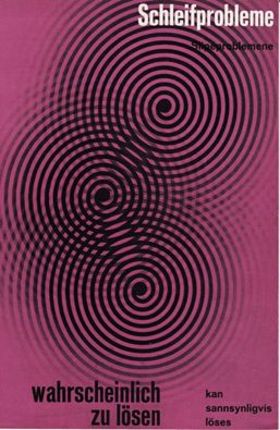
Further development of the grinding machines
Machine solutions for grinding problems of all kinds are created.
1953
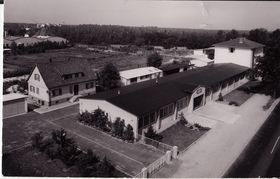
Construction of the first production hall in Speyer
A larger plot of land can be purchased at Wormser Straße 96 and an assembly hall built. The site initially offers sufficient space for expansion, so that an administration building was added in 1959 and further production facilities in 1963.
1952
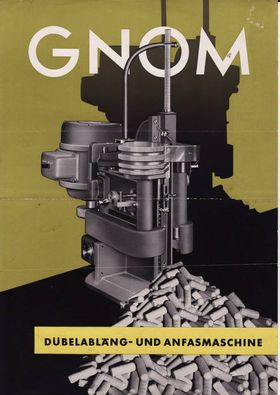
Further development of the wooden dowel machines
… for cutting and chamfering the wooden dowels.
1950

Development of machines for the production of wooden dowels
An innovation:
Wooden dowels replace nails and screws for connecting wooden parts in the furniture industry.
The manufacturing process is patented and the machines are exported worldwide.
1949

New start in Speyer am Rhein
After the end of the war, construction of a production facility for hand belt grinding machines at Wormser Landstraße 83 on today’s Roßsprung near SV Speyer.
In the foreground on the left is the private residence of the Ludwig Löser family, with the company building behind it.
1943
War bombing
The bombing of Ludwigshafen and the destruction of all private and company property with all means of production caused production to be shifted to the Odenwald.
1934
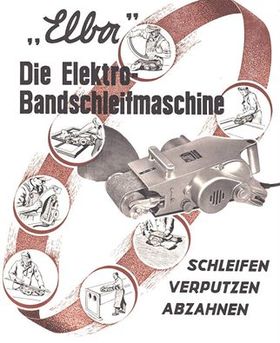
Invention ELBA, 1st transportable hand grinding machine
First transportable hand grinding machine.
Patent for the first internal rotor motor.
1934
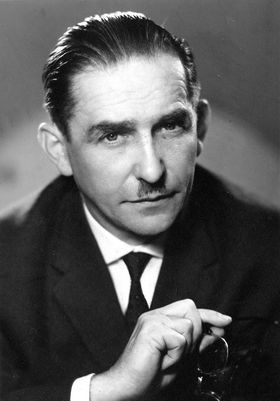
The engineer Ludwig Löser founded the Ludwig Löser machine factory in Ludwigshafen on July 1, 1934
Agile engineer, resourceful entrepreneur and successful top athlete in the 100m run. (German champion in 1926 with 10.6 seconds!)
His entrepreneurial lifetime achievement embodies one of his personal principles in the very best form: “If you prove yourself in sport, you won’t fail in life either”.
